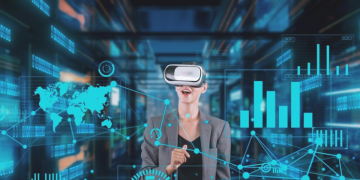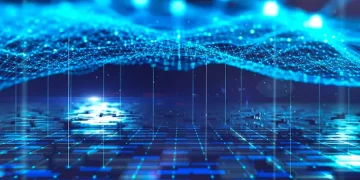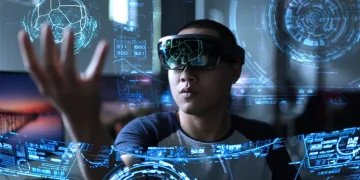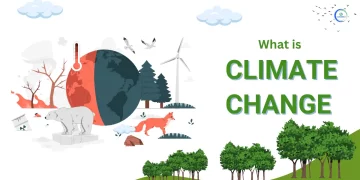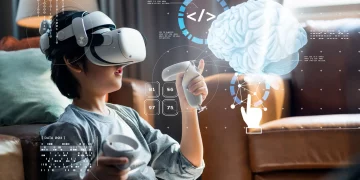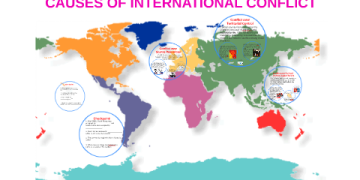Introduction
Human history is a story of innovation. From the wheel to the steam engine, from electricity to the internet, every technological leap has reshaped the trajectory of civilization. In the 21st century, the pace and scope of technological change are unprecedented. Emerging technologies—ranging from artificial intelligence (AI) and quantum computing to biotechnology, clean energy, and space exploration—are not only transforming industries but also redefining what it means to be human in a globalized, interconnected world.
This article explores the role of frontier technologies in advancing human progress, the social and ethical dilemmas they create, the geopolitical implications of global competition, and the prospects for building a sustainable, equitable future.
Part I: The Engines of Progress — Emerging Technologies at the Forefront
Artificial Intelligence and Big Data
Artificial intelligence has moved beyond automation to become a critical tool for decision-making, creativity, and problem-solving. AI-driven systems now assist in healthcare diagnostics, financial forecasting, logistics optimization, and even climate modeling. Big data analytics enhances our ability to understand complex social and environmental systems, allowing more precise policymaking and targeted interventions.
Yet AI also challenges traditional notions of labor, creativity, and privacy. The rapid adoption of generative AI raises questions about the future of work, authorship, and intellectual property.
Quantum Computing
Quantum computing represents a paradigm shift in computation. Unlike classical computers that process binary bits, quantum computers leverage quantum bits (qubits), which can exist in multiple states simultaneously. This property allows exponential increases in processing power.
Potential applications include breakthroughs in drug discovery, cryptography, and materials science. However, quantum computing could also undermine current encryption systems, posing new risks to cybersecurity.
Biotechnology and Synthetic Biology
Biotechnology is revolutionizing medicine, agriculture, and environmental management. CRISPR-based gene editing offers unprecedented precision in treating genetic disorders and enhancing crop resilience. Synthetic biology enables the creation of organisms designed to solve pressing challenges such as food insecurity and pollution.
At the same time, these advancements provoke ethical debates about “playing God,” unintended ecological consequences, and the ownership of genetic information.
Clean Energy and Sustainable Innovation
The shift toward renewable energy is central to global sustainability. Advances in solar, wind, and hydrogen energy, coupled with improvements in battery storage, are making clean energy increasingly cost-competitive. Technologies like carbon capture and smart grids promise to accelerate the decarbonization of economies.
Yet the transition also requires navigating challenges such as energy equity, resource extraction for battery production, and the geopolitical reconfiguration of energy supply chains.
Space Exploration and Colonization
Space technologies are no longer the exclusive domain of governments. Private companies are driving innovation in satellite networks, space mining, and planetary colonization. Initiatives targeting Mars and the Moon signal the beginning of a new era in human expansion beyond Earth.
These endeavors raise profound questions: Is space colonization a solution to Earth’s limits, or an extension of inequality and exploitation into the cosmos?
Part II: Reshaping Social Structures
Work and Employment
Automation threatens millions of traditional jobs, particularly in manufacturing and services. At the same time, it creates new opportunities in fields such as AI development, data analysis, and robotics maintenance. The challenge lies in managing this transition and preparing workers through lifelong learning and upskilling initiatives.
Education in the Digital Era
Technology is democratizing education. Online learning platforms and personalized AI tutors provide access to knowledge for students worldwide. Cross-disciplinary curricula integrating coding, ethics, and social sciences are becoming essential for preparing individuals for the complexities of the digital age.
Healthcare and Human Longevity
From telemedicine to precision medicine, technology is transforming healthcare delivery. Wearable devices track vital signs in real time, while AI models help detect diseases earlier than traditional methods. Biotechnology may even push the boundaries of human longevity, creating new societal challenges around aging populations and healthcare costs.
Part III: Geopolitical Implications of Emerging Technologies

National Competition
Technological dominance is now a cornerstone of national power. The competition between the United States and China in areas such as AI, semiconductors, and 5G illustrates how technology fuels strategic rivalries. Smaller states are forced to navigate between competing powers while fostering their own innovation ecosystems.
International Cooperation
Despite competition, global challenges such as pandemics and climate change require technological cooperation. Shared databases, collaborative research, and international governance frameworks are critical to addressing issues that transcend borders.
The dilemma is clear: how to balance national interests with the collective good of humanity.
Part IV: Ethical and Governance Challenges
Privacy and Data Security
The digitalization of daily life has eroded personal privacy. Governments and corporations collect massive amounts of data, often without adequate transparency or consent. Regulatory frameworks, such as the EU’s General Data Protection Regulation (GDPR), provide models for data protection but struggle to keep pace with technological innovation.
Algorithmic Bias and Social Justice
AI systems can perpetuate biases embedded in their training data, leading to discrimination in areas such as hiring, policing, and lending. Addressing these issues requires not only technical solutions but also broader societal discussions about fairness, accountability, and justice.
Environmental Costs of Innovation
Technological development is not without ecological consequences. Data centers consume vast amounts of energy, and resource-intensive practices such as cryptocurrency mining exacerbate carbon emissions. Ensuring that innovation aligns with environmental sustainability is a pressing priority.
Part V: Future Prospects — Toward Responsible Innovation
Cross-Disciplinary Integration
The future of progress lies at the intersection of disciplines: AI-enhanced biotechnology, quantum-powered climate modeling, and the integration of space exploration with Earth-based sustainability. Innovation will increasingly depend on collaborative, cross-sectoral approaches.
Global Governance and Ethical Frameworks
There is a growing need for international “tech governance charters” to establish ethical boundaries and promote responsible innovation. Just as nuclear treaties sought to prevent catastrophic risks, new frameworks must guide the use of AI, biotechnology, and quantum computing.
Human-Centric Progress
Ultimately, technology should serve humanity, not control it. Prioritizing inclusivity, equity, and sustainability ensures that innovation enhances the well-being of all, rather than deepening inequality.
Conclusion
Emerging technologies are redefining human progress at an unprecedented scale. They promise breakthroughs in medicine, sustainability, and space exploration, but they also bring risks of inequality, ecological harm, and geopolitical conflict. Humanity faces a critical choice: to allow technology to shape us blindly, or to consciously guide it toward a future that balances progress with responsibility.
At the edge of innovation, the path we choose will determine not only the trajectory of our civilization but also the essence of what it means to be human.








